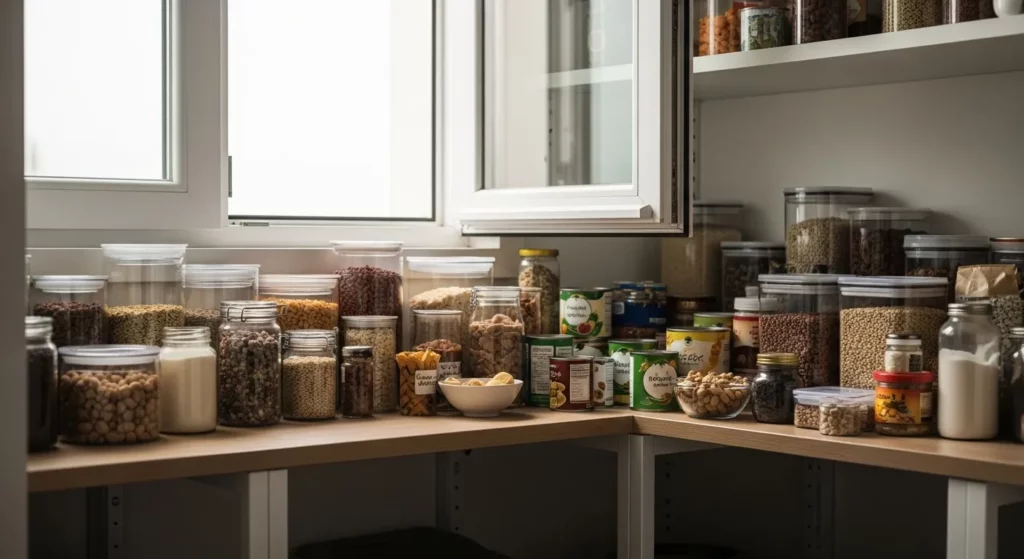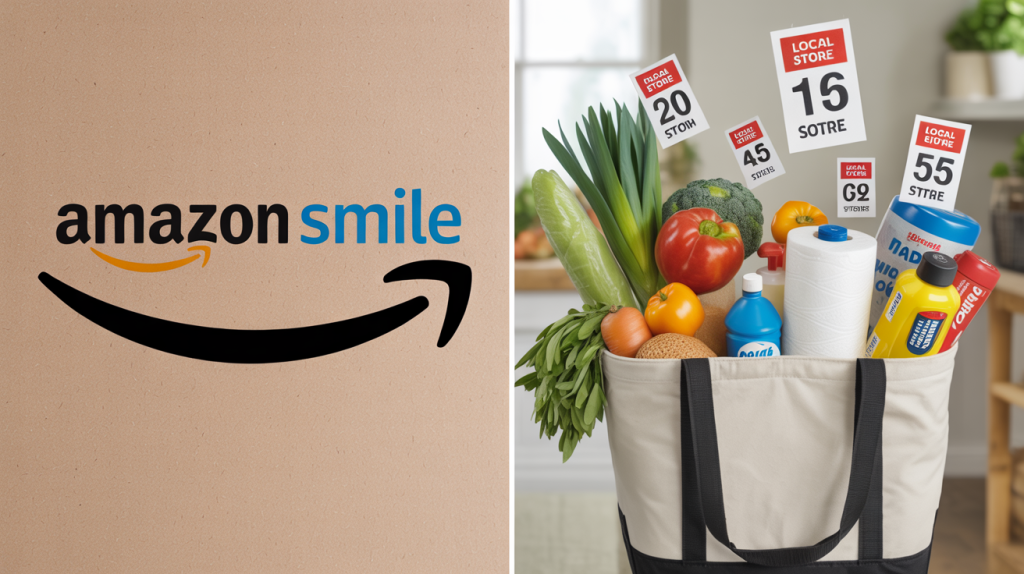
2. Pantry Staples (Flour, Sugar, Salt, Spices, Canned Goods)
When it comes to basic ingredients that form the foundation of many meals, the difference between name brands and store brands is often negligible in terms of quality and taste. Think about items like all-purpose flour, granulated sugar, salt, common spices (like black pepper or cinnamon), baking soda, baking powder, canned beans, canned tomatoes, or pasta.
Why generic is a smart buy: These are often single-ingredient products or very simple formulations. A can of store-brand diced tomatoes will likely taste and perform just as well in your favorite chili recipe as a more expensive name brand. The same goes for flour in your baking or salt in your seasoning. The savings on each item might be small (perhaps 20-50 cents per item), but if you stock your pantry with many of these staples, the cumulative savings on your grocery bill will be noticeable.
What to look for: Check the ingredients list. For simple items like sugar or salt, it’s usually just one ingredient. For canned goods, compare sodium levels or added sugars if those are concerns for you. Often, the only significant difference is the label and the price.
3. Bottled Water
Many people buy bottled water for convenience or because they prefer the taste over their tap water. However, a significant portion of bottled water brands are simply filtered municipal tap water, sometimes from the same sources as your home tap water. The markup on bottled water is enormous.
Why generic is a smart buy (or an even smarter alternative): Store-brand bottled water often comes from the same bottling plants as more expensive brands. If you must buy bottled water, the generic is likely just as good. However, an even smarter and more economical approach is to invest in a good quality water filter pitcher (like Brita or Pur) or a faucet-mounted filter for your home tap. Refilling a reusable water bottle is significantly cheaper and much more environmentally friendly than constantly buying single-use plastic bottles, whether name brand or generic.
What to look for: If buying bottled, compare prices per ounce. But seriously consider the filter-and-reusable-bottle route for maximum savings and minimal environmental impact.
4. Cleaning Supplies (Many Basic Cleaners)
The cleaning aisle is filled with brightly packaged products promising miraculous results. However, for many basic cleaning tasks, store-brand versions of all-purpose cleaners, glass cleaners, dish soap, or disinfecting wipes can work just as effectively as their heavily marketed name-brand counterparts.
Why generic is a smart buy: Many cleaning products use similar active chemical ingredients. For example, a store-brand glass cleaner will likely contain ammonia or a similar agent that gets windows sparkling just like the leading brand. You’re paying for the brand’s advertising budget and sometimes for fragrances or specialized (but not always necessary) formulations. Moreover, simple ingredients like white vinegar and baking soda, which are incredibly inexpensive, can handle a multitude of cleaning tasks around the home effectively and with fewer harsh chemicals.
What to look for: Compare the active ingredients list if provided. For general cleaning, give the store brand a try. For tough or specialized jobs, you might still prefer a specific brand, but for everyday tasks, generic often does the trick and helps you save money.
















12 Responses
I have to disagree with the idea that all flour is created equal. Some generic lour isn’t even good enough to make play dough. Sticking with name brand flour such as Pillsbury or Gold Medal is best for baking. If you want to splurge then you can use King Arthur. If you need specialty flours then Bob’s Red Mill.
Dish soap nothing works as well as dawn for cutting through greasy messy cooking instruments
Dawn!!!
Definitely not Ajax
Flour: Pillsbury or Gold Medal
Syrup: Aunt Jemima, King, or Mrs Butterworth’s
Generic is thin and watery
Generic sugar I will do. Mainly coming out of Baltimore from Domino’s anyway
My flour will always be Pillsbury I buy the none bleached one and get it on sale. I always get all my items on sale.
One can always buy inexpensive when that buy on sale even if not needed you will have on hand and spent less than on the off brands. If you can afford….. buy 2. Have what you want and save. Never pay full price!
I think you are expecting more from our food providers than they deserve. The grain industry is corrupt you are eating more pesticides than grain its all GMO’d and shouldnt be eaten…the milk and cheese has been infiltrated by big Pharma find out about rennet!?!? Milk that is another problem on how its produced. Do some research please
I have been a truck driver for 30 years. They are correct. I have hauled both, name brand and store/generic brands, out of the same warehouses. That’s not to say that all the products are the same, but many are. Some could be seconds. When I pick up a load of water, from Nestles, I never know what label it will have on it. But even the “Spring” water, which is trucked into the plant, is filtered down to nothing but H2O, then minerals are added back. So, if you like one brand over another, it’s those minerals that give the water a specific taste. And, that can vary by brand, even from the same plant.
Pretty well written article except some folks will find fault everywhere. Thanks for the suggestions of what to look for in the basic research when switching name brand for generic items. A little research can lead to some cost savings in your grocery bill.
I disagree with all of these items. Generic paper towels are no good. I only like Viva. Frozen fruits are not all the same… I only buy organic. And dawn dish detergent is the best. Otherwise you are using double the product which makes the price not good. Sometimes generic Tylenol or ibuprofen are OK but all the rest of this matters.
I agree with your comments, however not all generic compare to name brands. Tide is expensive, but with generic you have to use more, nothing works better than Dawn, even to unplug your drains. Don’t buy generic ofc at “dollar stores.” I know our pockets are getting thinner with the current economy, all depends on that.
BJ’ paper towels are THE absolute best hands down! Toilet paper too!!!
could not find the seven generic items ? wtf ?